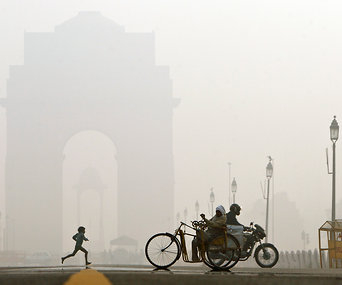Pollution killing millions
 New estimates say air pollution is responsible for up to 8.8 million extra deaths around the world each year.
New estimates say air pollution is responsible for up to 8.8 million extra deaths around the world each year.
That suggests air pollution causes 1.6 million more deaths each year than tobacco, though smoking is avoidable but air pollution is not.
The researchers used exposure data from a model that includes atmospheric chemical processes and the way they interact with land and sea, as well as chemicals emitted from natural and man-made sources such as energy generation, industry, traffic and agriculture.
These were applied to data from the WHO, which included information on population density, geographical locations, ages, risk factors for several diseases and causes of death.
They focused particularly on levels of polluting fine particles known as ‘particulate matter’ that are less than or equal to 2.5 microns in diameter - known as PM2.5 - and ozone.
Worldwide, they found that air pollution is responsible for 120 extra deaths per year per 100,000 of the population.
“The number of deaths from cardiovascular disease that can be attributed to air pollution is much higher than expected,” said co-author of the study, Professor Thomas Münzel, from the Department of Cardiology of the University Medical Centre Mainz in Germany.
As a result of these findings, the researchers say that national governments and international agencies must take urgent action to reduce air pollution, including re-evaluating legislation on air quality and lowering limits on the annual average levels of air pollution to match the WHO guidelines.
Canada, the USA and Australia use the WHO guideline, but the EU is lagging a long way behind in this respect.







 Print
Print